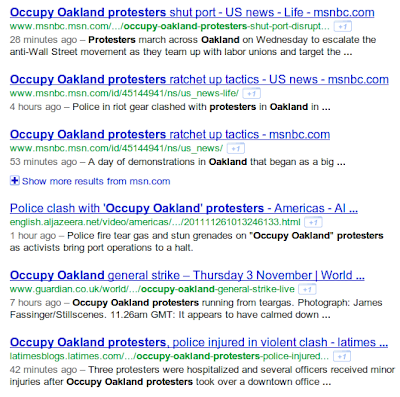Implications of the new Google update focussing on Fresh Content

Value/Importance: [rating=5]
Source: Official Google Blog
Our Commentary
This latest update from Google is aimed at promoting fresh content (where relevant). The example they use on their blog I think summarises the update perfectly:
If I search for [olympics], I probably want information about next summer’s upcoming Olympics, not the 1900 Summer Olympics (the only time my favorite sport, cricket, was played). Google Search uses a freshness algorithm, designed to give you the most up-to-date results, so even when I just type [olympics] without specifying 2012, I still find what I’m looking for.
Google has been working on indexing content as fast as possible since its release of the Caffeine update last year. The update has serious ramifications on search results, as mentioned on the Google Blog it will affect 35% of all searches - Panda was 12% initially for example! There are 3 types of searches affected, as explained on the Google blog:
- 1. Recent events - if a topic is trending like the example top right then the most recent examples are included - this looks to be a tweak on the current approach and maybe the least significant for marketers
- 2. Regular occurring events - we expect Google Trends data is accessed for this - so this could affect seasonal searches such as sales or holidays
- 3. Frequent updates - this is where Google knows that content changes frequently for example, best smartphone, then the freshest reviews will be used, not those from several years ago which are authoritative - big implications for publishers and reviewers here.
Marketing Implications
With the alarming 35% figure from Google, you can be sure this will is a major update, you should start to consider:
- If you're not publishing fresh content, then you will have been missing out, but could miss out more. This makes it essential for all retailers and other transactional sites to have a blog, fresh content stream in our view
- Your ranking reports could very soon become erratic for particular keywords, so use conversions (sales & leads) as well as natural traffic to monitor the impact of this update - see this tutorial on the new SEO options query report by Dan Barker for how
- Have you got alerts / dashboards setup which can monitor the impact - see Dave Chaffey's tutorial on GA Intelligence for this
- Implementing RSS feeds of your news / blog content - These seem to be utilised more in the updates
- Utilise the last modified tag in your XML site-maps
- If the content you create is time sensitive you will need to continually publish related items to remain on the search results pages especially if its a competitive term
The largest implication for this update is to your editorial / publishing and marketing calendar. If you were not already you will need to make sure you website is alive with constantly updated & relevant content (content = blogs, products, videos, images etc not just news), you need to make sure you are part of the conversation & publishing. The next week or so should see the update refined and understood more so expect to hear more on this update soon.
SEOMoz's latest Whiteboard Friday covers off in some detail things you should consider in light of this update. We'll keep you up-to-dates on reports of it's impact and whether there is a sexy/scary name for it - Search Engine Land simple calls it a QDF (Query Deserves Freshness) update. QDF is worth researching now if you're a full time SEO I think.





